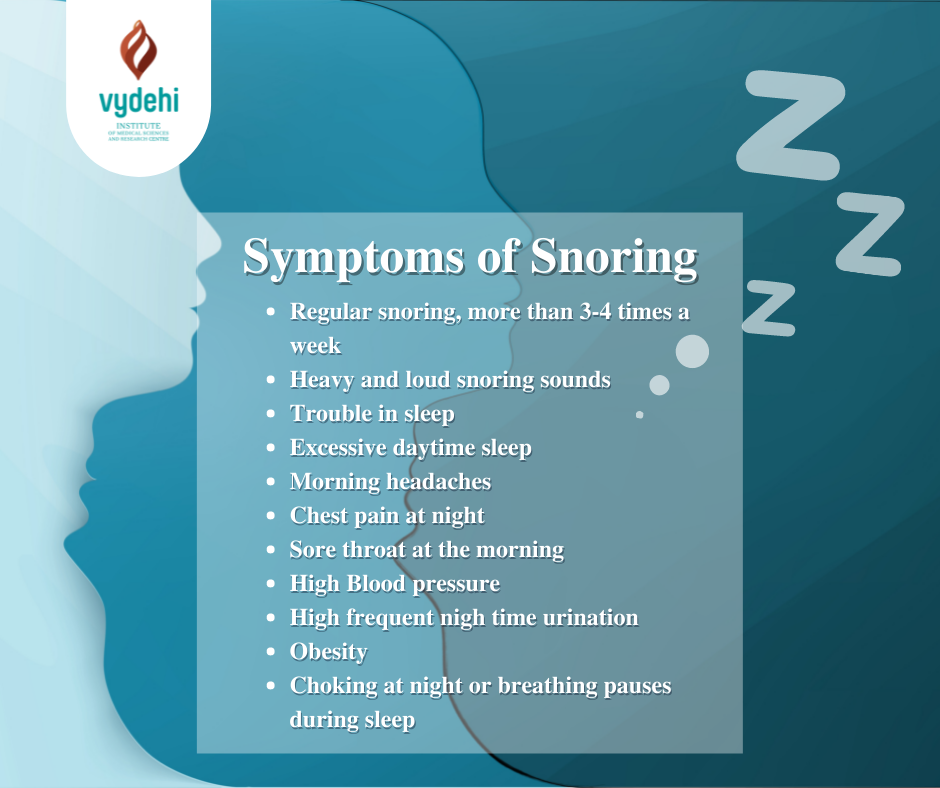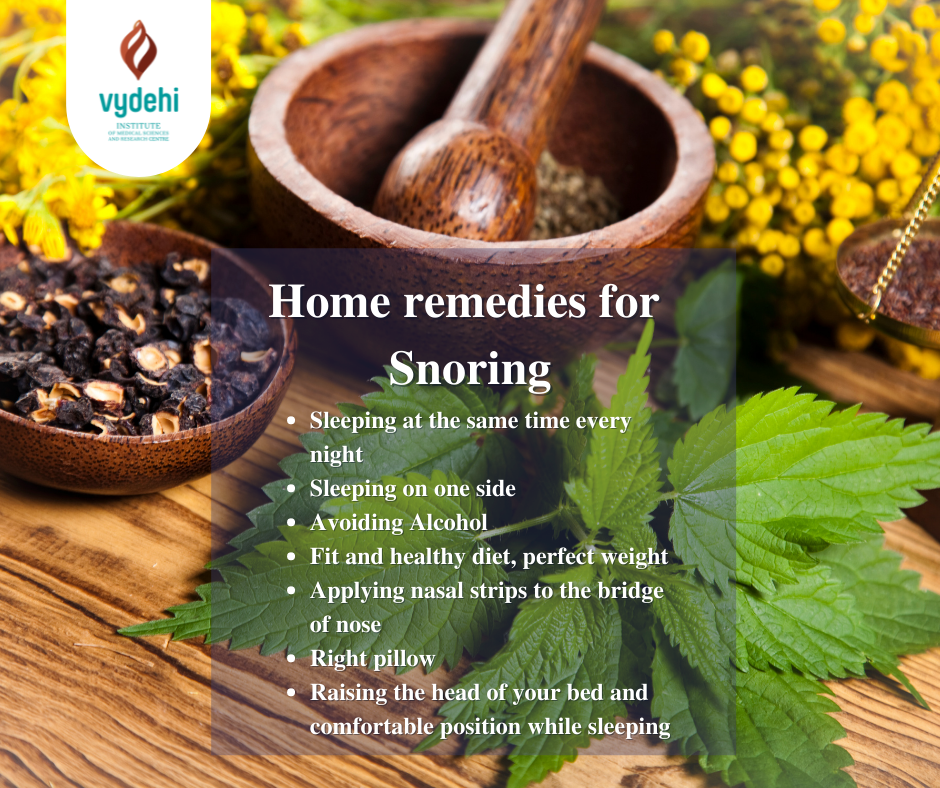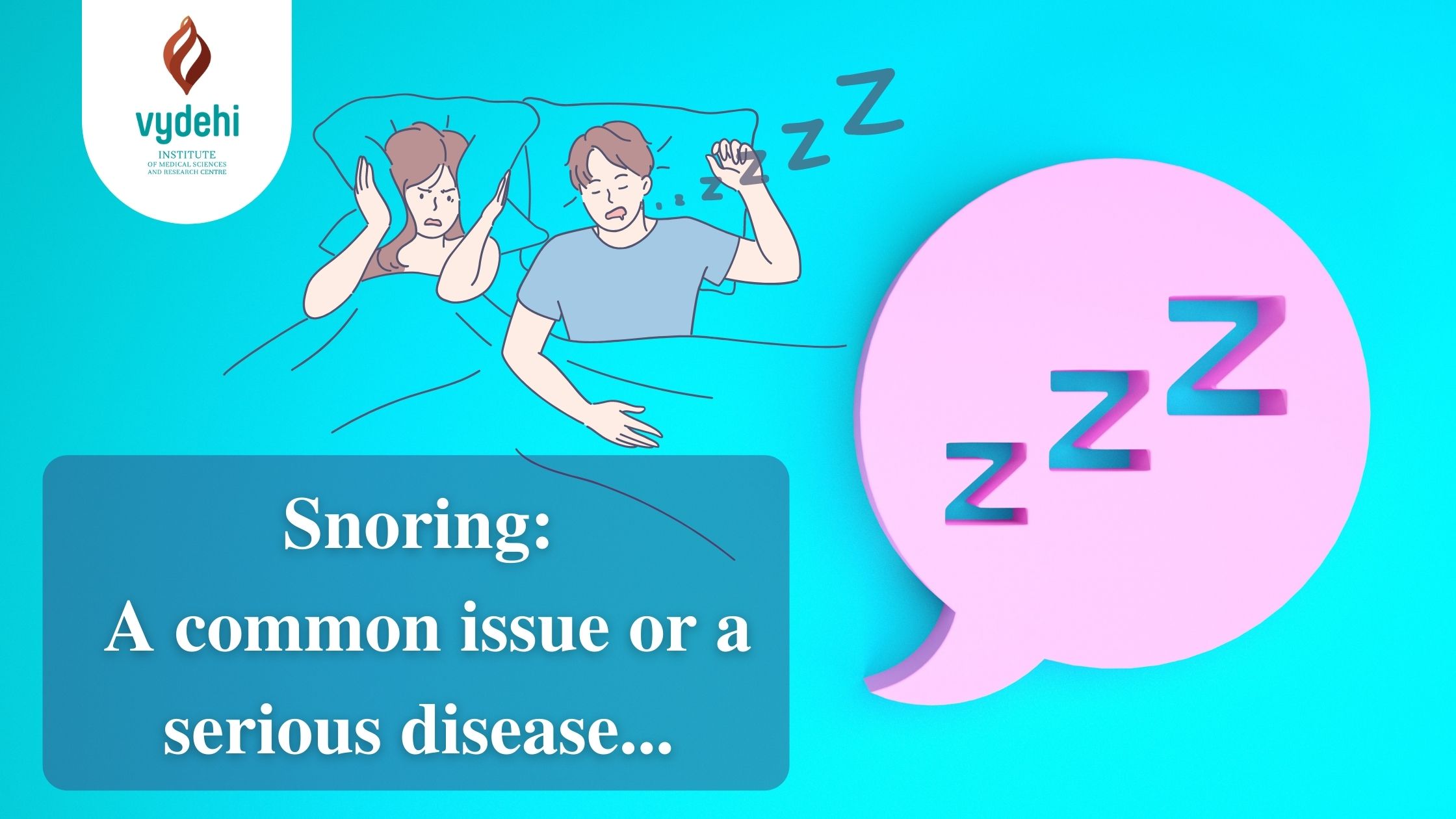“I couldn’t sleep last night; you were snoring so loud”
“No, I don’t snore, you are lying.”
One or the other time, every person who snores have faced this conversation in their lifetime.
So, let’s discuss what is snoring and why does it happen.
In simple words, snoring is a noise one makes while sleeping. Scientifically snoring is a breathing noise that occurs when aur flows past relaxed tissues in the throat causing the tissues to vibrate when one breath.
According to the American Academy of Otolaryngology, up to 45% of American adults snore and 25% do it on a regular basis.
Snoring is a common and can interrupt sleep, more commonly in men than women and can get worse with age.
Why people snore?
Snoring can happen because of number of causes and factors. When a person breath, the air is pushed through the nose, mouth and throat, and snoring happens when flow of air through the mouth and nose is blocked, which is rattling and vibration of tissues.
Some common causes which block the airway and cause snoring are:
• Nasal Airways – The nasal airway is blocked either due to allergies or because of infection, or problems like chronic nasal congestion or a crooked partition between the nostrils which is known as Deviated nasal septum, can block the airways and cause snoring.
• Alcohol – People who consume alcohol tends to snore more than people who don’t, because Alcohol relaxes throat muscles and muscles which cause snoring. Alcohol right before bedtime can cause more noises of snoring.
• Lack of Sleep – Sleep deprivation is another factor of snoring as similar to Alcohol, lack of sleep can also relax the throat muscles too much.
• Mouth Anatomy – People with enlarged tissues and tonsils that restrict airflow generally produce mild snores.
• Obesity – People will slight overweight tends to snore more, as they might have extra tissues in the back of their throats that may narrow the airways.
• Sleeping Position – Sleeping on the back can cause sounding, or using too soft or too large pillow can.
Symptoms of Snoring

Snoring is a symptom of sleep apnea, a sleeping disorder called as Obstructive Sleep Apnea (OSA). And the symptoms of Snoring are:
• Regular snoring, more than 3-4 times a week
• Heavy and loud snoring sounds
• Trouble in sleep
• Excessive daytime sleep
• Morning headaches
• Chest pain at night
• Sore throat at the morning
• High Blood pressure
• High frequent nigh time urination
• Obesity
• Choking at night or breathing pauses during sleep
Risk Factor
Snoring can actually be risky at times and the risk can increase with age. Some of the risk factors which may contribute to snoring are,
• Having narrow airway – Some people have large tonsils, adenoids or long soft palate which can narrow the airways.
• Alcohol – A person who drinks Alcohol, than a person who doesn’t tends to have snoring issues.
• Men – Males are more likely to snore or have OSA than women
• Obesity – Overweight people have more risk to have snoring issues.
• Family history – Sometimes heredity is a risk factor for OSA
Complications
Snoring can be common and simple as well as sometimes dangerous. The risk level of snoring depends upon its types, severity and frequency.
• Light or Infrequent snoring
Infrequent snoring is normal and common with some people and doesn’t require much medical assistance. The person sleeping next to you might have issues, other than that light snoring is normal.
• Restlessness during night
Primary snoring occurs more than 3 times a week and the frequency can cause poor night sleep, however this is not much of a health concern as snoring this much will not affect the health much or cause choking but this can make one feel dizzy in the morning or sleepy at daytime which can affect the quality of life.
• Sleeping Disorder
It’s time to consult a doctor when one notices most of the symptoms of Snoring and can be worrisome for health. OSA can cause major complications and effects a person sleeps and can even have serious health issues like hight blood pressure, diabetes, stroke or depression. One can have risk of losing life during sleep if the breath gets choked and remains unnoticed.
When is the right time to see a doctor?
Primary snoring or OSA, one can see a doctor at both times, although when one notices few is the given signs, it is preferable to visit a doctor.
• Snoring more than 3 times a week
• Heavy and loud snoring
• Choking during sleep
• High blood pressure
• Increase in snoring sounds while sleeping
Preventions
Lifestyle plays a pivotal role when any medical issue require prevention, simple changes in the lifestyle can actually help in maintaining a healthy lifestyle and avoid similar issues.
Home remedies for snoring issues
• Sleeping at the same time every night
• Sleeping on one side
• Avoiding Alcohol
• Fit and healthy diet, perfect weight
• Applying nasal strips to the bridge of nose
• Right pillow
• Raising the head of your bed and comfortable position while sleeping

Treatments
Although prevention and care might help in reducing snoring issues or stop it when light snoring occurs, but frequent snoring and OSA required treatment.
The doctor after examining the symptoms and causes of your snoring, will also perform a physical examination to offer a perfect treatment for snoring. Before providing a treatment for such issue, it is important for doctor to understand the family history and sleep cycle of the patient.
The doctor can suggest, few or any of the following treatment to the person,
• Oral appliances – A small plastic devices which are form-fitting dental mouthpieces are provided which help in advancing the position of the jaw, tongue, and soft palate to keep the air passage open to avoid snoring.
• Continuous Positive Airway Pressure (CPAP)
Masks are common practice after covid and certainly we are used to it, and thus CPAP is not the hard trick when comes of treatment of snoring. CPAP is a approach which involves wearing a mask on face covering nose and mouth while one sleep. It helps in treating sleep apnea and reduce snoring by blowing aur into the airways while one sleep.
• Surgery – Severe snoring can be treated with the help of surgery. The doctor might remove or shrink the tissues in throat or make the soft palate stiffer. There is various procedure of surgery, some of which are –
1. Unulopalatopharyngoplasty (UPPP), where one is given general anaesthetica and the surgeon tightens the excess tissues from the throat.
2. Maxillomandibular advancement (MMA), which involves moving the upper and lower jaw forward which help in opening the airways.
3. Hypoglossal nerve stimulation is a new technique which employs a stimulus applied to the nerve that controls forward movement of the tongue so the tongue does not block the airway when one take breath.
Snoring and Sleep Apnea – Difference
Snoring is a sign of sleep apnea, but snoring is still different from the latter.
Both snoring and sleep apnea can disturb sleep but sleep apnea can cause more problems than snoring does. Sleep apnea not only disturb the person sleeping next to you, but also wakes you up several times at night often gasping for air. One can be conscious or may not of the awakening.
Snoring will not always cause day sleepiness, heart disease or stroke, but sleep apnea has more chances of such issues.
There are chances that is a person have heart disease, he/she is more likely to have sleep apnea. Although people say, that sleep death is possible because of lack of breathing or choking during sleep, but it is mostly false because Dr. Pervez says, ‘The person mind wakes him up so that he can take a breath.’
Frequently asked Questions about snoring?
- Is snoring a problem?
If you have frequent snoring issues and it disturbs your sleep cycle and tour partners sleep, then it can be problematic and needs attention. Snoring is at times normal when it happens less than 3 times a week.
- Does snoring affects your partner sleep as well?
Yes, snoring can be an issue if it disrupts your partner’s sleep. But there are ways to solve the problem, such as,
- Let your partner know, they snore
- Apply positive changes in your lifestyle
- Try snoring devices or nasal spray
- Observe and understand, consult a doctor if its serious.
- How can I stop snoring?
There exist various remedies both homely and medical. One can try those remedies discussed above in the article to stop snoring.
- Does nasal spray works?
Nasal sprays are definitely one of the popular anti-snoring remedies. It is advisable to consult a pharmacist or a doctor before using a nasal spray, as nasal sprays are not for all type of snorers.
- Is loud and frequent snoring a serious problem?
Snoring sounds can be problematic and irritating at times, but not always a serious problem. Though it is time to consult a doctor if snoring occurs more than 3 times a week and are very loud and causes breathing or choking issues.
- My child snores, is it normal?
As adults snore, a child snores at night too. However, snoring more than 4 times a week for a child can be a matter of consultation with doctors.
- Is snoring genetic?
This is a question not yet answered by the medical science clearly, some claims that snoring can be genetic, some claims there exist no snoring gene. Yet some features such as, small nostrils, narrow airways, soft palate, obesity small jaw etc, can be inherited from genes.
- How can snoring be treated?
The article includes various home and medical remedies for snoring through which snoring can be treated. Even when snoring is problematic and requires medical assistance, it can be treated with the help of surgery and medicines.
Concluding, snoring can be common and even dangerous at times, but basic preventions or treatments during severity can help in fighting the same. Snoring is not worrisome if a person is mindful and careful.
Also Read: Dry Mouth: Causes, Symptoms, and Treatment
Disclaimer: The information included here is only for knowledge sharing purposes, and the blog is not intended to be a substitute for diagnosis, medical advice, or treatment by a healthcare professional. Because individual needs appropriate advice, the reader should consult their doctor to determine the appropriate disease depending on their situation.

 Emergency Number
Emergency Number

Is snoring a genetic issue?
Great piece of writing with immensely informative contents! I really liked the writing style and the whole process of the story building. Waiting for more posts! Cheers!!
Will the Snoring reduce or does it work after Ayurveda treatment?
What is the ayurvedic treatment for snoring?
Why snoring sounds like choking?
Is there any ayurvedic medicine or treatment for snoring problems?
What is the basic complications of snoring?
I just found out that there is a treatment available to reduce snoring, I thought that snoring is something that is usually due to fatigue or because it can be hereditary, it turns out that there are serious things that also cause snoring
Hello everyone, it’s my first go to see at this website, and article is actually fruitful in support of me, keep up posting such articles.|
Any ayurvedic medicine to stop snoring?
This is a topic that is near to my heart… Thank you! Where are your contact details though?|
Hi there to every single one, it’s actually a good for me to go to see this web page, it consists of important Information.|
Can snoring be genetic?
Is snoring a disease ?